Durabilité
-
Qui sommes-nous ?
-
Menu principal
- Qui sommes-nous ?
- Vue d'ensemble
- Histoire
-
Actualités
-
Qui sommes-nous ?
- Actualités
- Actualités
- Blog
- Dirigeants
- Fondation
- Sites
- Nous contacter
-
Entreprises
-
Menu principal
- Entreprises
- Aperçu de nos activités
- Textile
- Chimie
- Revêtements de sol
-
Solutions de performances par Milliken
-
Entreprises
- Solutions de performances par Milliken
- Vue d'ensemble
- Consulting Services
- Education and Events
- Resources
- Virtual Tour
- Contact Us
- Des produits
-
Industries
-
Menu principal
- Industries
- Aperçu de nos industries
- Agriculture
- Vêtements
- Automobile et transport
- Construction et infrastructures du bâtiment
- Revêtements, peintures et encres
- Espace commercial
- Biens de consommation
- Éducation
- Énergie et services publics
- Gouvernement et défense
- Soins de santé et sciences de la vie
- Hospitalité
- Fabrication
- Emballage et impression
- Espaces résidentiels
-
Durabilité
-
Menu principal
- Durabilité
- Vue d'ensemble
- Rapports
- Éthique
- Actualité
- Carrières
POUR L'HUMANITÉ
AVOIR UN IMPACT POSITIF SUR LES GENS ET LE MONDE QUI NOUS ENTOURE
Engage FOR HUMANKIND
It's the curious who redefine the world, seeking not just to understand it, but to improve it. We are the inventors, the designers, the problem-solvers. Our curiosity isn't aimless, it's rooted in the pursuit of something greater.
EXPLORE OUR SUSTAINABILITY REPORT NOW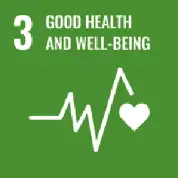
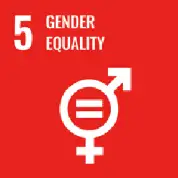
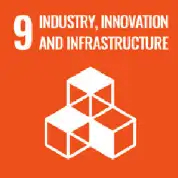
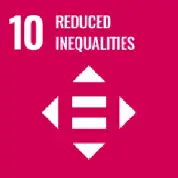
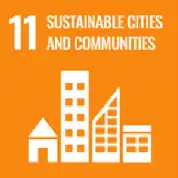
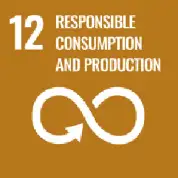

PEOPLE
Empowering our teams to foster a fair, safe, and inclusive future.
PEOPLE GOALS PROGRESS

ZERO LOST-TIME SAFETY INCIDENTS

INCLUSIVE ASSOCIATE COMMUNITY

ZERO DATA PRIVACY BREACHES

100,000 VOLUNTEER HOURS IN OUR COMMUNITIES









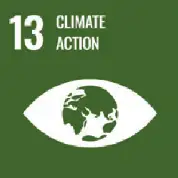

PRODUCT
Innovating to reduce resource use, promote health, and contribute to circularity.
PRODUCT GOALS PROGRESS

ANALYZE NEW PRODUCTS LAUNCHED USING SUSTAINABILITY ASSESSMENTS

CONVENE TO ADVANCE THE GOAL OF SOLVING THE PLASTICS END‑OF‑LIFE CHALLENGE

SUSTAINABLE INNOVATIONS




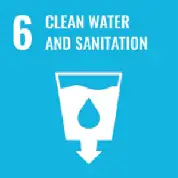
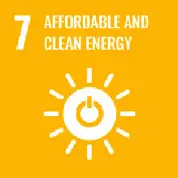




PLANET
Investing across our businesses and value chains to improve outcomes.
PLANET GOALS PROGRESS

REDUCED INDEXED GREENHOUSE GAS EMISSIONS BY 25%

INCREASE RENEWABLE ENERGY USE TO 100,000 MWH/YR

REDUCE INDEXED SOLID WASTE BY 25%

ZERO WASTE TO LANDFILL

REDUCED INDEXED WATER USAGE BY 25%

ZERO ENVIRONMENTAL VIOLATIONS






PLANET
Investing across our businesses and value chains to improve outcomes.
PLANET GOALS PROGRESS

REDUCED INDEXED GREENHOUSE GAS EMISSIONS BY 25%

INCREASE RENEWABLE ENERGY USE TO 100,000 MWH/YR

REDUCE INDEXED SOLID WASTE BY 25%

ZERO WASTE TO LANDFILL

REDUCED INDEXED WATER USAGE BY 25%

ZERO ENVIRONMENTAL VIOLATIONS




NET-ZERO
Dedicated to collaborating to achieve emission reduction and elimination by 2050.
NET-ZERO TARGETS PROGRESS

REDUCE ABSOLUTE SCOPE 1 AND SCOPE 2 GREENHOUSE GAS EMISSIONS BY 50.4% BY 2030

REDUCE ABSOLUTE SCOPE 3 GREENHOUSE GAS EMISSIONS BY 30% BY 2030

REDUCE ABSOLUTE SCOPE 1, 2 AND 3 BY 90% AND NEUTRALIZE REMAINING 10% BY 2050




NET-ZERO
Dedicated to collaborating to achieve emission reduction and elimination by 2050.
NET-ZERO TARGETS PROGRESS

REDUCE ABSOLUTE SCOPE 1 AND SCOPE 2 GREENHOUSE GAS EMISSIONS BY 50.4% BY 2030

REDUCE ABSOLUTE SCOPE 3 GREENHOUSE GAS EMISSIONS BY 30% BY 2030

REDUCE ABSOLUTE SCOPE 1, 2 AND 3 BY 90% AND NEUTRALIZE REMAINING 10% BY 2050

BUSINESS CONDUCT
We disclose the role of our Board of Directors and management teams so report users understand our governance approach to business conduct.
BUSINESS GOALS PROGRESS

GOVERNANCE

IMPACTS, RISK, AND OPPORTUNITY MANAGEMENT

METRICS AND TARGETS
FAQs
The U.S. Environmental Protection Agency defines Sustainable Manufacturing as “the creation of manufactured products through economically-sound processes that minimize negative environmental impacts while conserving energy and natural resources.” In part, that means designing and operating manufacturing processes to minimize impacts to air, water and landfill, seeking to limit the impact supplying the world’s goods has on our natural environment. Sustainable manufacturing also seeks to address resource conservation by building and continually improving production processes that optimize energy usage, utilize clean fuels for energy or steam production, and optimize raw material conversion, as well as many other avenues for conservation that minimize negative impacts on the environment. The world’s understanding of sustainable manufacturing is extending to human and societal impacts, including operating manufacturing facilities in a safe and healthy manner to ensure the well-being of employees.
Traditional sustainability comes from the desire to balance the needs of humans and nature for generations to come. Many companies are focusing on their environmental impacts through their operations to better understand how we can avoid mass consumption of natural resources and enhance our environmental quality. This continues to evolve within the manufacturing sector into a holistic approach that incorporates previous initiatives, such as pollution prevention, recycling, waste reduction, and conservation, among others.
More and more, communities, B2B customers, and consumers expect manufacturers to leverage sustainable practices to run their operations. Rather than a competitive advantage, it is an expectation. One could consider sustainable practices that include health, environmental, and product life-cycle concerns as a “license to operate,” whether granted by the government or society.
The tangible benefits of sustainable manufacturing include:
- Reduced operating costs
- Increased environmental benefit through reduced natural resource consumption
- Increased conversion and throughput
- Lower compliance or regulatory costs
The intangible benefits of sustainable manufacturing include:
- Improved brand recognition and reputation
- Improved recruitment and retention
- Capability building
Milliken & Company published its first annual Sustainability Report for 2018 as a mechanism to measure, report and hold the organization accountable to deliver on its commitment to make a positive impact on the world for generations to come. Milliken’s sustainability goals focus on Planet, Product, People, and Net-Zero as the foundation of our journey to 2025. Planet goals support reduction of carbon emissions, waste disposal, and water usage. Product goals respond to stakeholders’ priority of circular economy, while People goals reinforce its commitment to the health, wellness and safety of associates, diversity and inclusion, and technology and innovation.
After concentrating on laying the groundwork and truly setting the stage for the next five years, we have gained insights by listening to what is important to our internal and external stakeholders. We have seen progress towards our 2025 goals by way of reducing greenhouse gas emissions and a decrease in lost time incidents. While we still have work to do, we are seeing the results of our actions. We will continue to uncover the solutions necessary to achieve our long-term goals.




